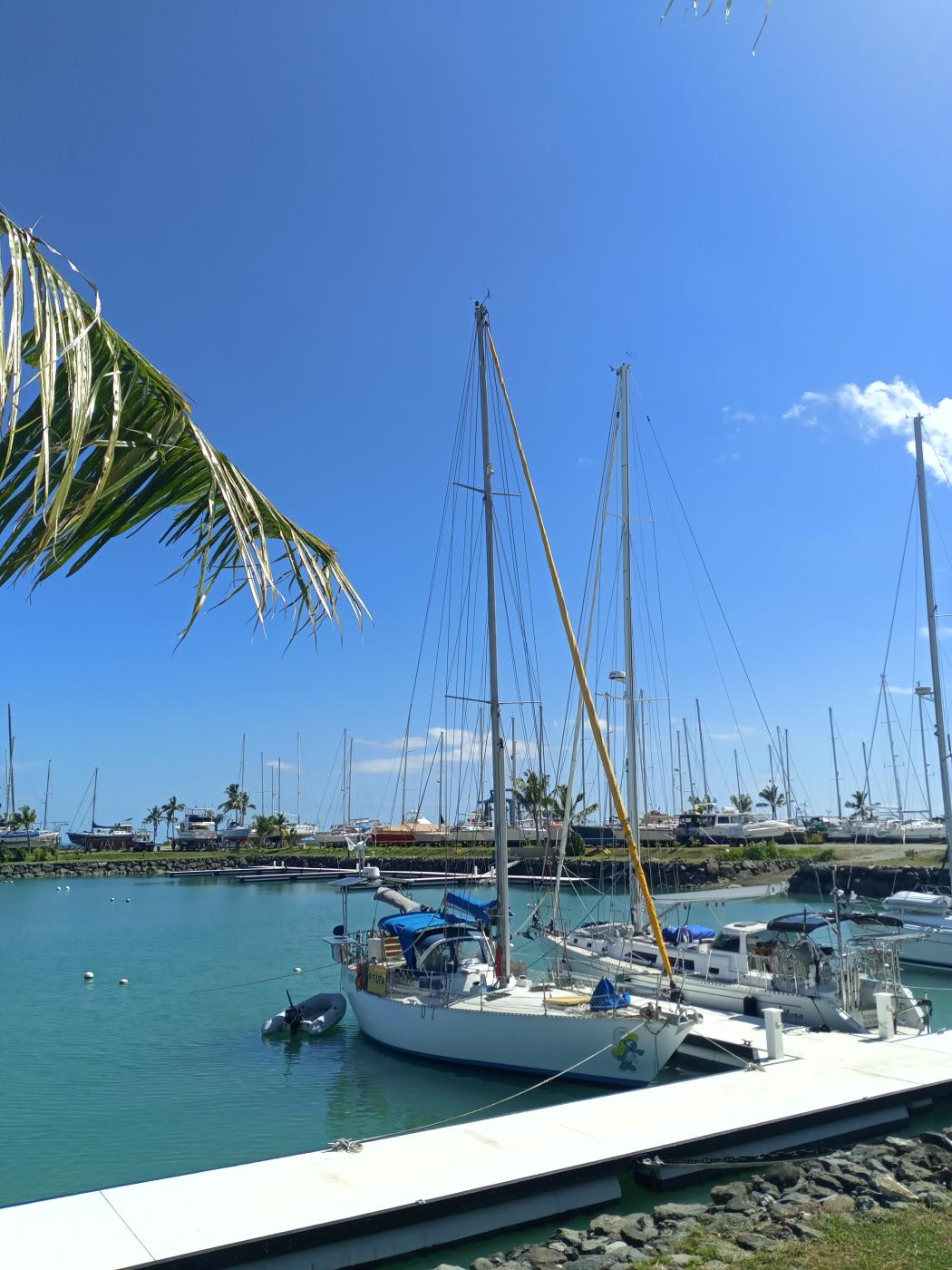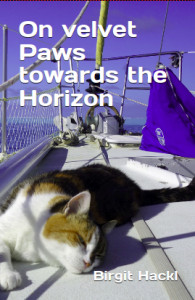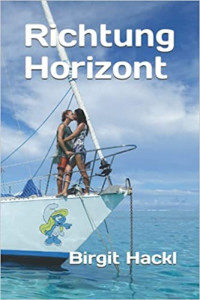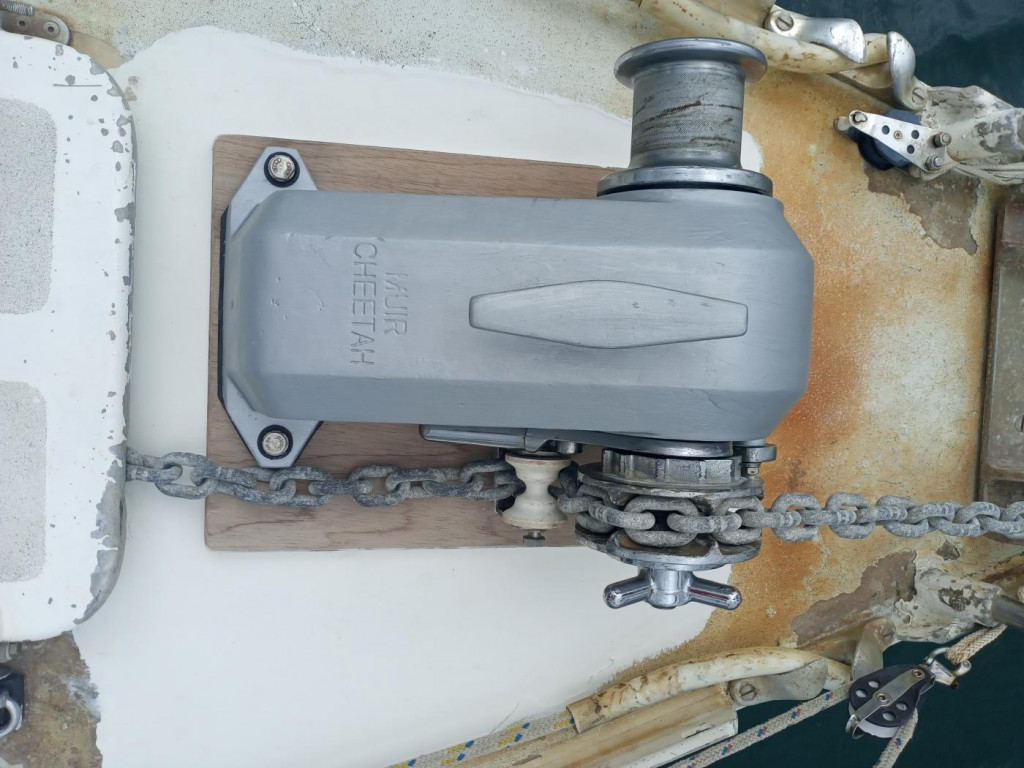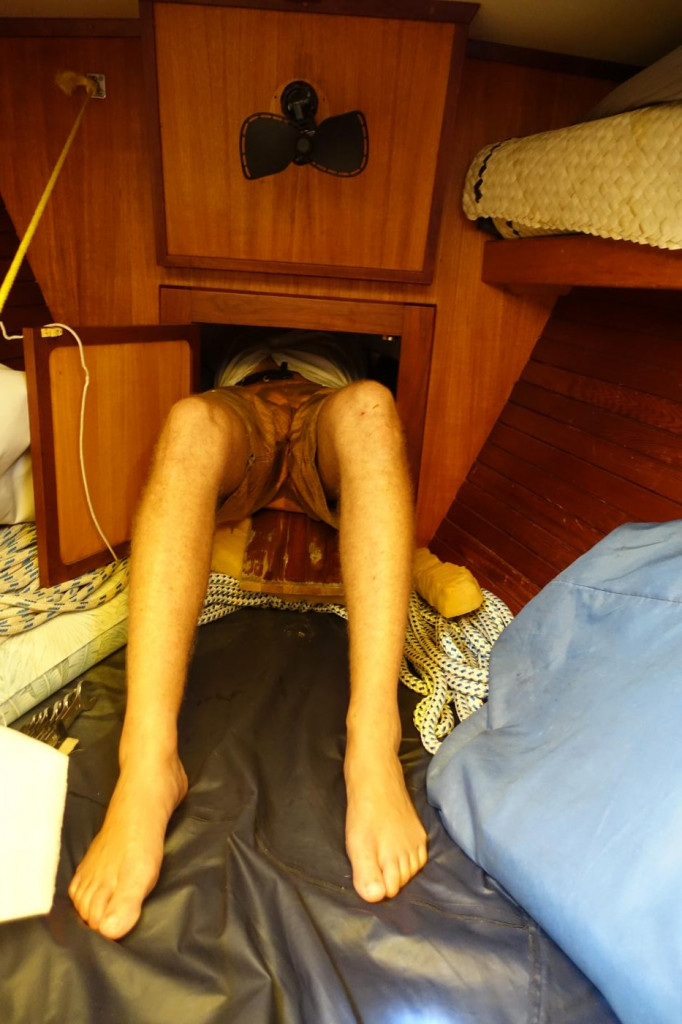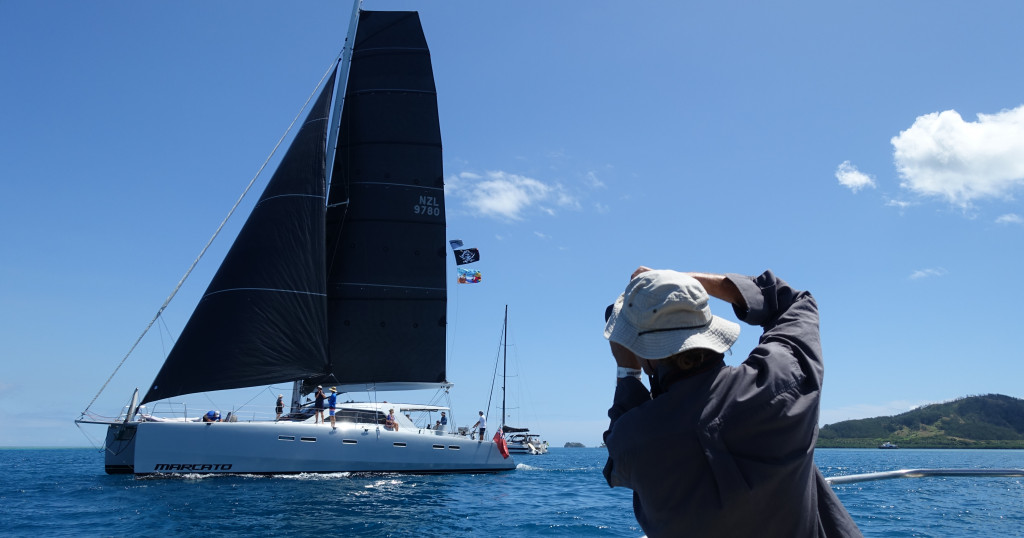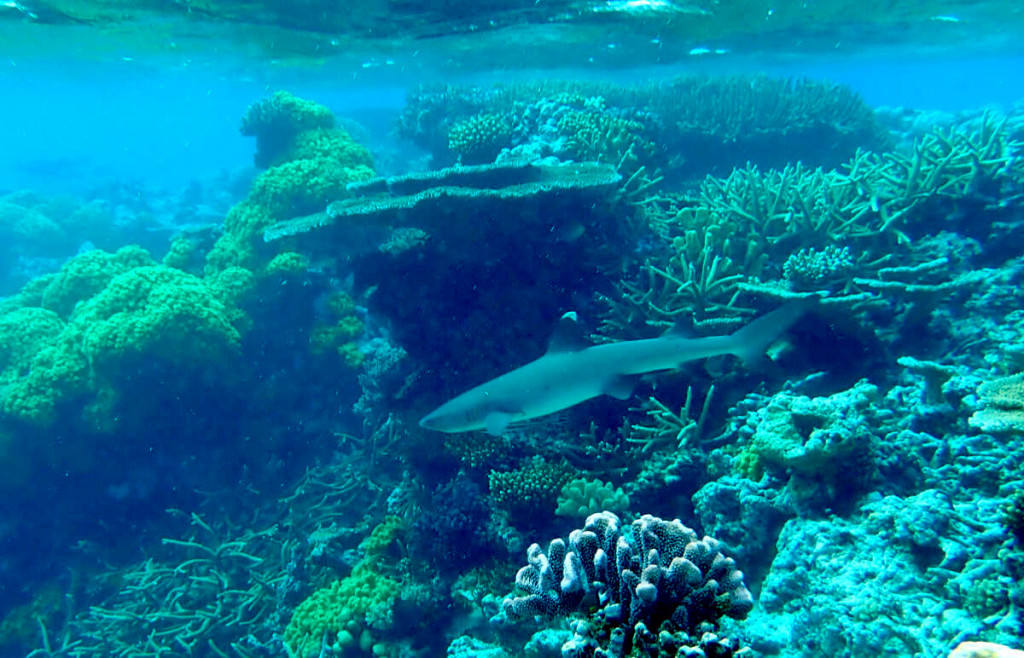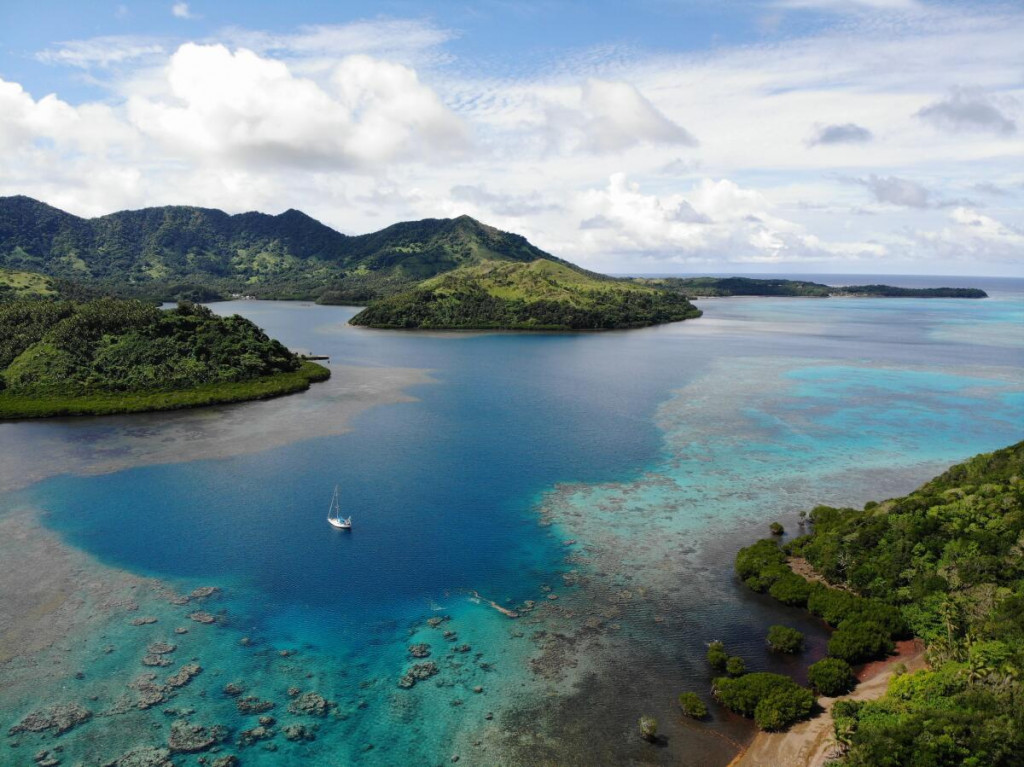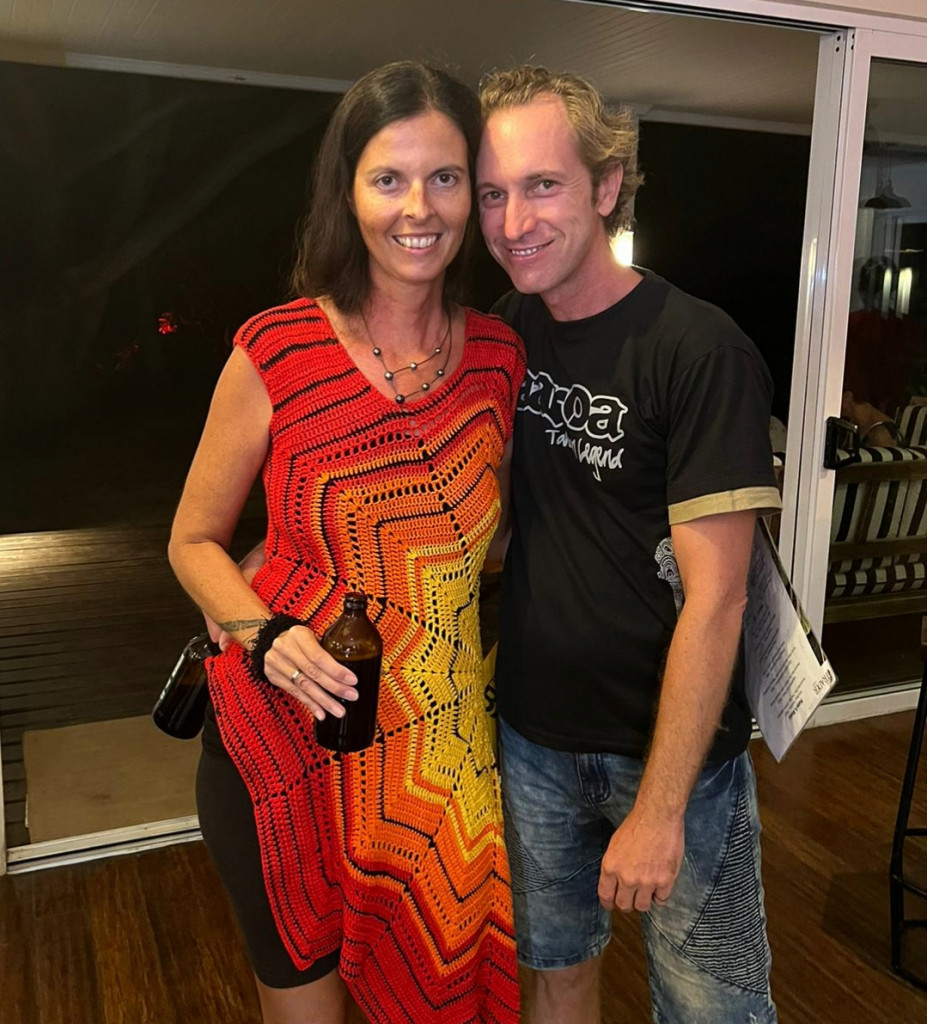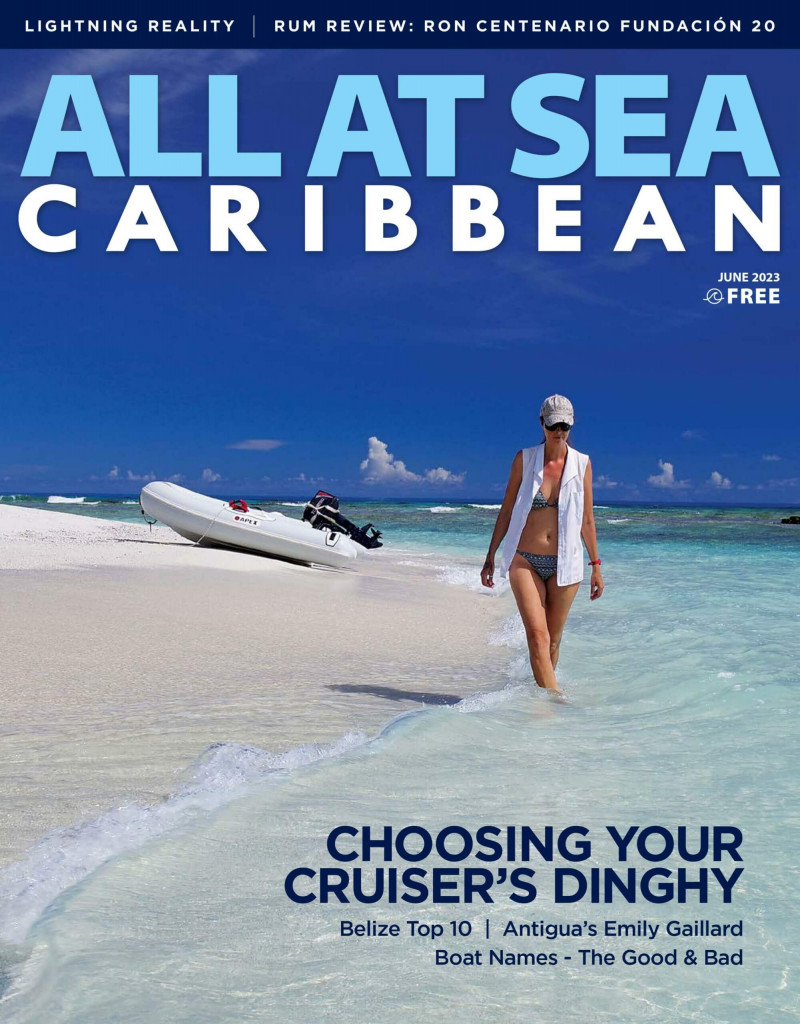When our neighbours in the marina gave away their Muir Cheetah windlass for free (they replaced most gadgets on their newly bought boat) Christian couldn’t resist and grabbed it–after all the Cheetah is the bigger (and younger) sister of our beloved, but elderly Muir Cougar. An upgrade from 1000 W to 1200 W, a newer motor–great!
It turned into a major undertaking as we had to order spare parts from Tasmania to refurbish the winch. Last week we started the exchange: we had to empty our forecabin (main storage area) and the forepeak (more storage) and sails, brewing equipment and spare parts were piled up in the salon. Of course we needed most of our tools (live in the lockers in the salon) and as it turned out that the deck beneath the wooden base plate was badly corroded, we needed the angle grinder (other locker) and then we had to primer and paint (yep, yet another locker) before mounting a new wooden plate and the refurbished new pet (pussy cat Cheetah). And all that in rainy Suva in between downpours and hectic canvas-tent building while the salon looked as if a bomb had exploded in the forecabin.
I’m still not allowed any lifting or pulling, so poor Christian slaved away on his own, half of the time stuck with his upper body in the forepeak while working/drilling/installing overhead. Anyway, now the job is done and the pussy cat is purring nicely…
Our cougar has found a new home here in Suva and will be installed on a power boat ![]()
2023
24
Sep
New windlass
2023
19
Sep
Sailing to Suva
Three days ago we finally had a weather window to start our trip eastwards again. We set out in a stiff breeze from the North with Pitufa rushing downwind in 25 to 30 knots, only to run out of wind once we had rounded the SW cape of Viti Levu with some motoring/motorsailing/drifting to reach the island of Beqa. The following day we used a light breeze from the S and let the gennaker pull us the 20 remaining nm to Suva! Thanks to SY Garulfo for the blister pic!
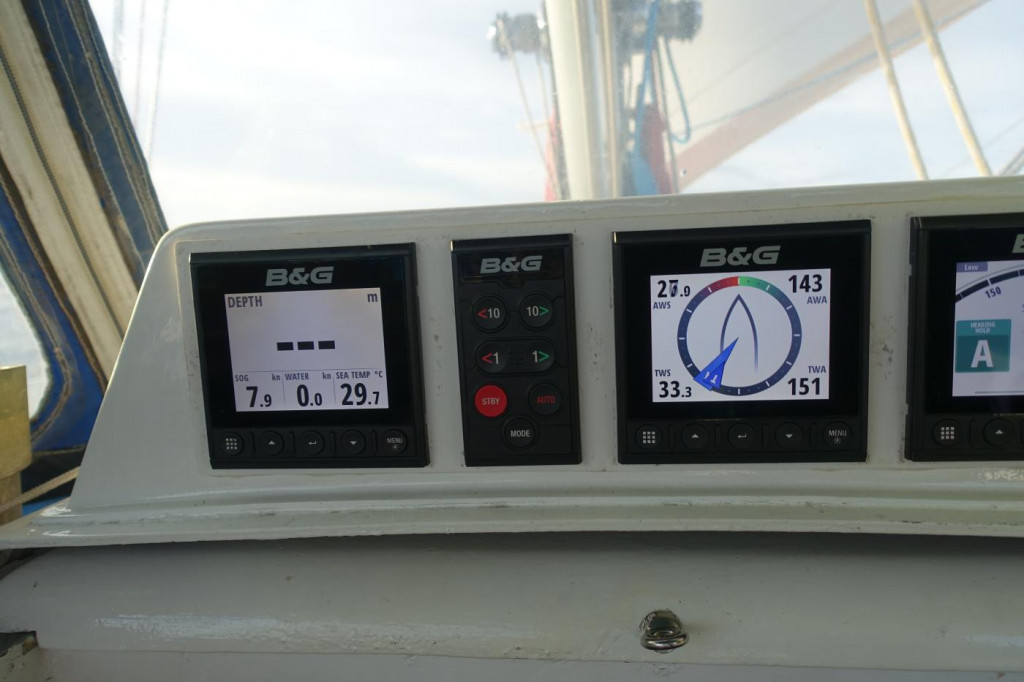
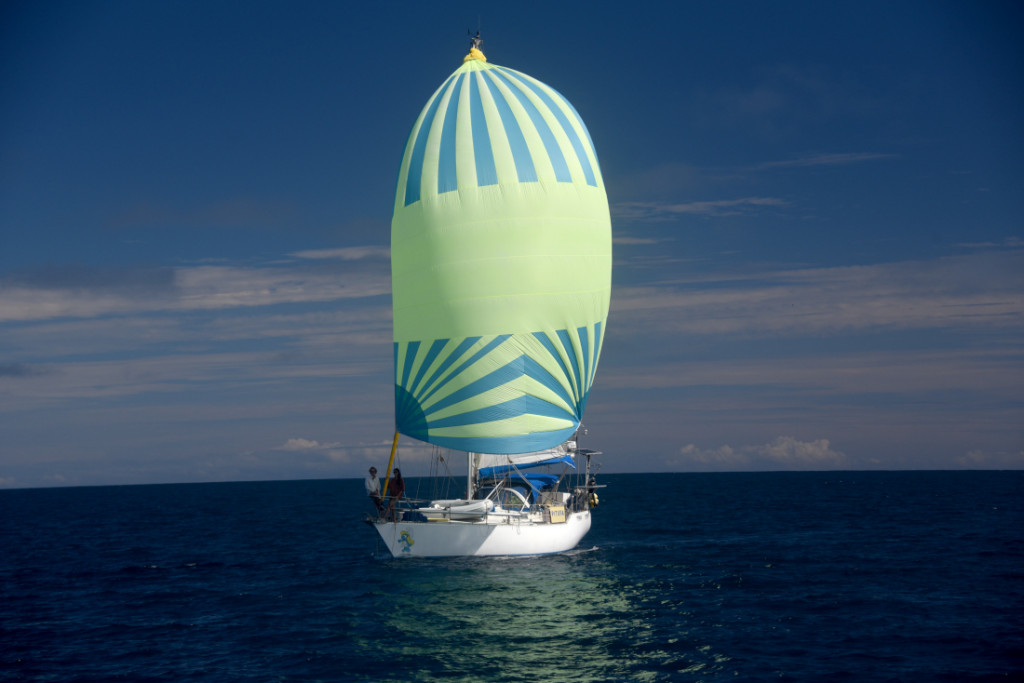
2023
12
Sep
2023
26
Aug
Squids
Most people hear squid and think “Calamari fritti”, but here in Fiji we meet squids when we go snorkeling and these fascinating, colour-changing, curious creatures are so much more than the rubbery rings that are served in restaurants.
Quite often they hang out next to the boat, preferably near the anchor chain in line formations, constantly chatting with each other by complicated shifts in colour. Usually they scatter when we approach them snorkeling, but last week we met two that curiously approached us!
According to Wikipedia 3 million tons of squid are fished every year and imagining the number of these delicate creatures you need to reach such an incredible weight it seems clear that this kind of overharvesting cannot be kept up much longer–it is certainly not sustainable. Squids and cuttlefish are not listed as endangered species, but then we lack studies about what’s going on in the oceans… They are an important prey for predators including sharks, sea birds, seals and whales. As a keystone species low in the food chain we don’t know what impacts the uncontrolled human fishing has on those species that rely on squids for their nutrition.
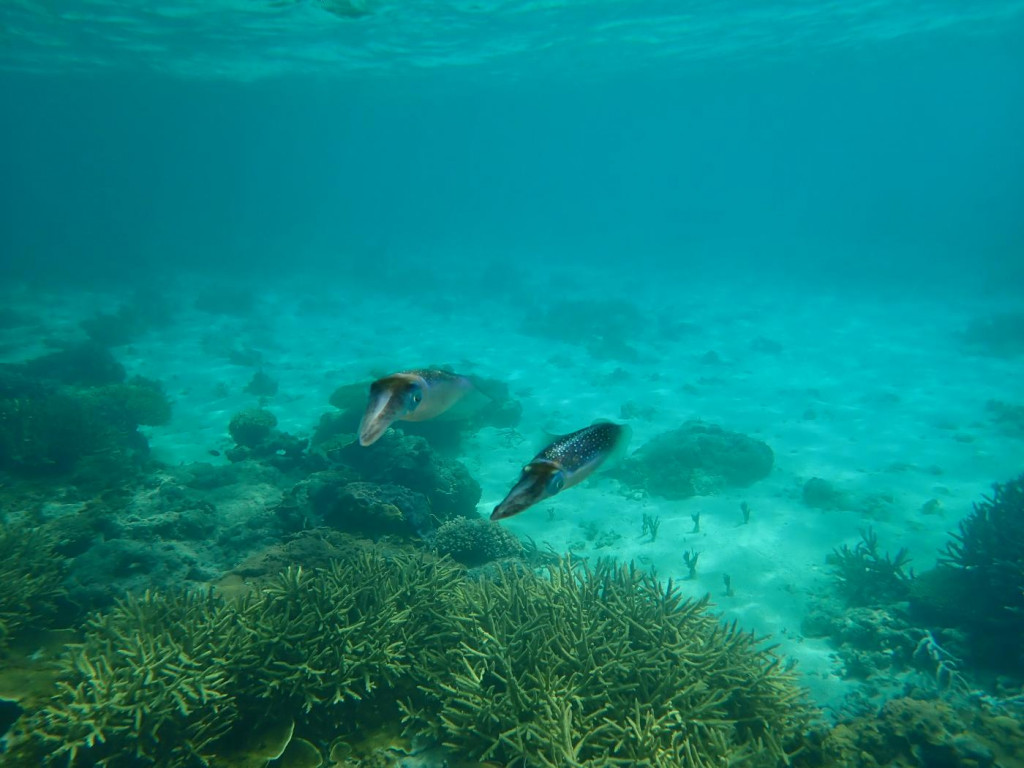
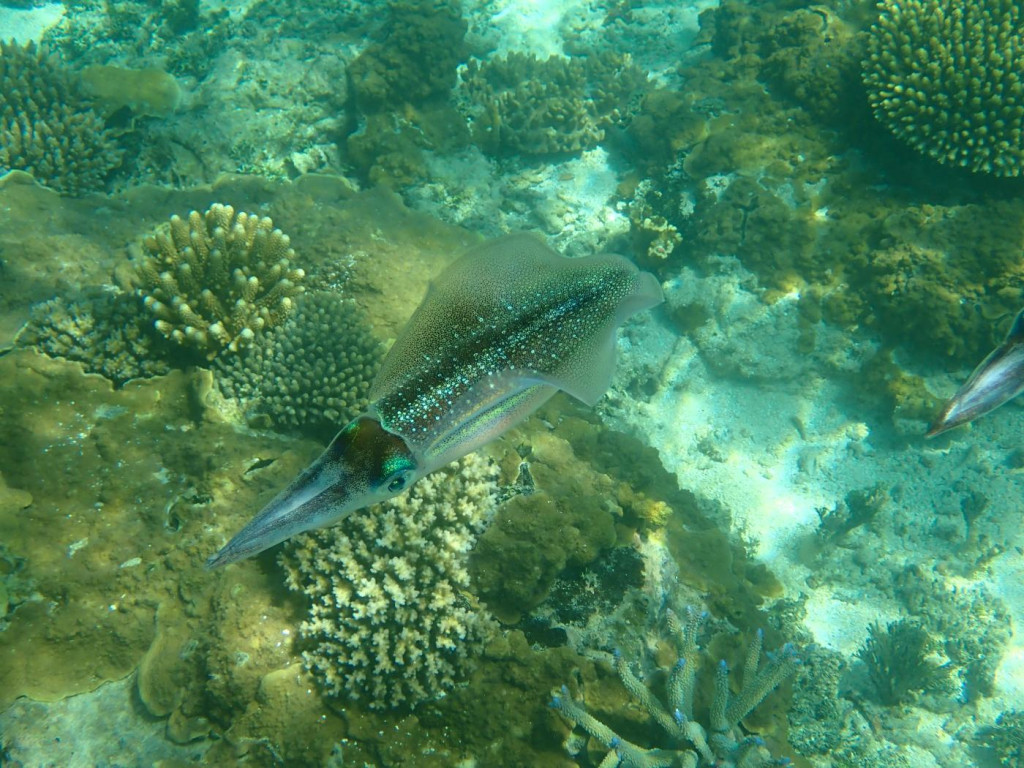
2023
15
Aug
Passive pollution
Remember the times when smoking was still allowed in restaurants and bars? You’d go in as a non-smoker for a quick drink, cough in the murky-looking air for a while and return home with red eyes, smelly hair and clothes. Those unlucky enough to work in such an environment often had negative effects on their health, so everyone agreed at some point that “passive smoking” was dangerous for the public and therefore laws were made to protect non-smokers.
To me it’s much the same when people don’t care about their carbon footprint, motor long distances in their boats instead of sailing, run the generator each day instead of installing solar panels and constantly jet around the globe–preferably in private jets and helicopters as we see each day here in Fiji when new guests arrive at high-end resorts. The general view seems to be that those lucky enough to be able to afford it, are entitled to live on a super-size carbon footprint. I don’t envy them their “luxuries”, but the problem is that we all live on the same planet that gets damaged more badly every day, we all suffer from the consequences and catastrophes caused by global warming and we all breathe the same polluted air. I feel that we small-size carbon-footprinters (frowned upon by many as eco-nerds) are entitled to be protected from “passive pollution” done by thoughtless people which is just as lethal (or worse) as globally recognized passive smoking…
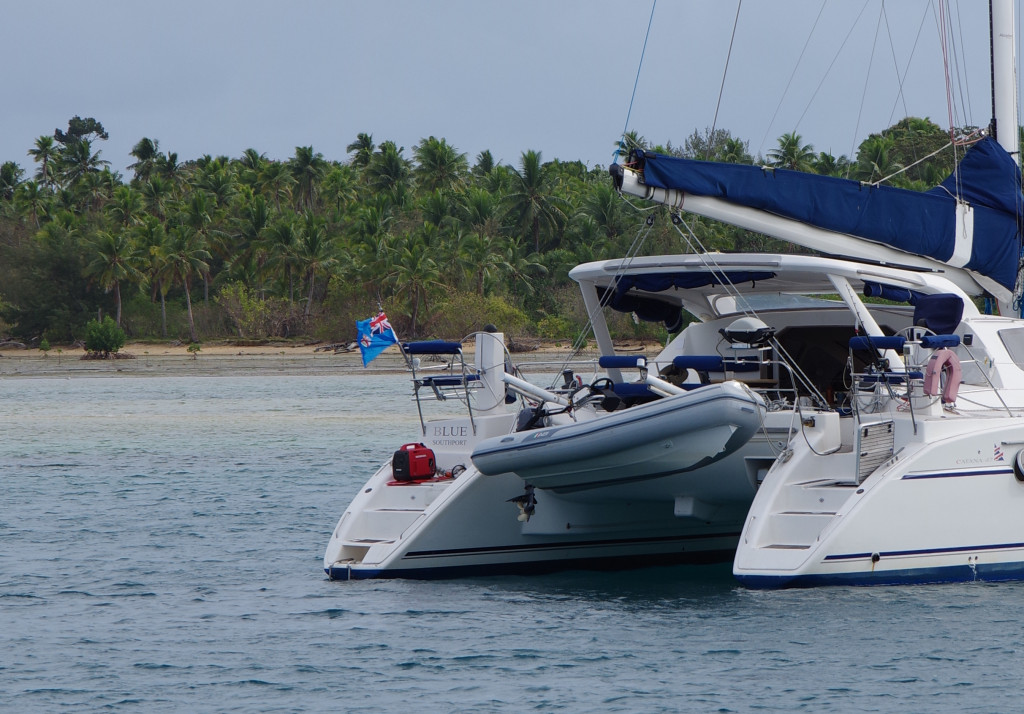
2023
08
Aug
Winter in Fiji
Fiji lies at 17° south, so it doesn’t get properly cold, but we (tropical islanders that we are) still call June to September winter, get out socks and hoodies and drink lots of tea (to warm up after an outside shower) and mulled wine for sundowners instead of cold beer. Especially while the southeasterly winds are blowing and bring cold air masses from the south (sometimes with sunny skies, but sometimes with grey rain clouds) the air temperatures drop below 20° during the day and below 15° at night. We spend our time with indoor projects, write (me), program (Christian), work on boat maintenance (both) and wait for summer to go exploring and have fun.
Ironically winter’s also the time when most sailboats visit Fiji–either Kiwis who have sailed up from cold and stormy NZ, people who left their boats in marinas or cyclone pits during summer and new boats arriving from the east (Tonga, Cooks, Fr Poly, the Americas). They call these months “the sailing season”, enjoy the fresh trade winds for sailing and kite surfing and frolic in the 26° C water they find warm (in comparison to NZ). They will either sail westwards or leave their boats again once the cyclone season comes (yep, that’s the time we call summer ![]() )
)
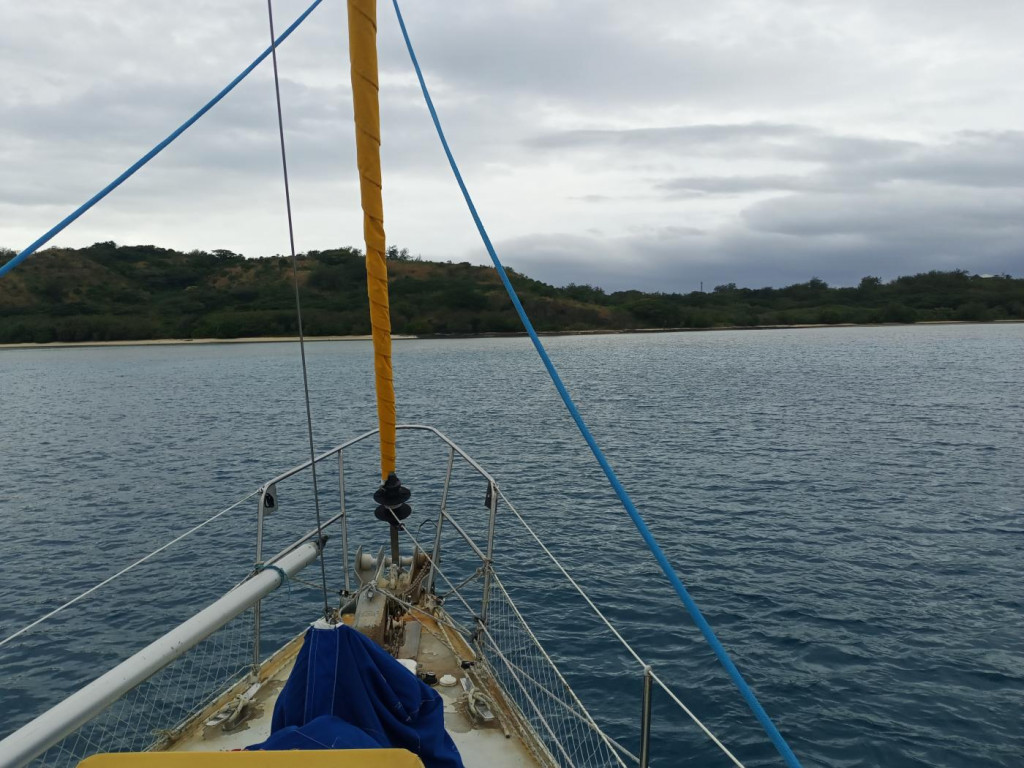
2023
14
Jul
Why tabu (no-fishing) areas at all and why should they be permanent?
Here’s a summary of the explanation we give islanders here in Fiji. English is a second language for most people here and many of the people who live out on the islands don’t have much formal education, so the info is a bit simplified, but it helps to illustrate the main points. Please feel free to download the pdf if you would like to use it and help us spread the word about the advantages of protecting fish, for the sake of mother nature, but also for the sake of sustainable fishing for the people.
Why are Tabu (no fishing) areas necessary?
Communities in the Pacific Islands have successfully managed and protected their coastal marine areas for many hundreds of years.
But nowadays the oceans and their fish suffer from global changes like
- increasing human populations
- climate change
- pollution
Also the local fishing around the islands has changed:
- outboards
- flashlights for night-time fishing
- freezers to store fish
As soon as the fishing is no longer meant to feed the island population, but to export for profit, reef fishing is not sustainable, because the resources of a reef are very limited!
When implemented successfully, tabu areas have the potential to ensure fishing remains sustainable and will provide marine resources for future generations. For communities, a key motivation is that tabu areas will result in improved catches of seafood in nearby fishing areas. However, tabu areas must be carefully designed and managed to achieve this aim. They should implement a variety of habitats and be big enough to allow the fish to move without leaving the boundaries immediately. When the numbers of fish have already substantially decreased it is also difficult to reverse the process.
The key is to protect early enough while there is still a healthy reef with a variety of fish!
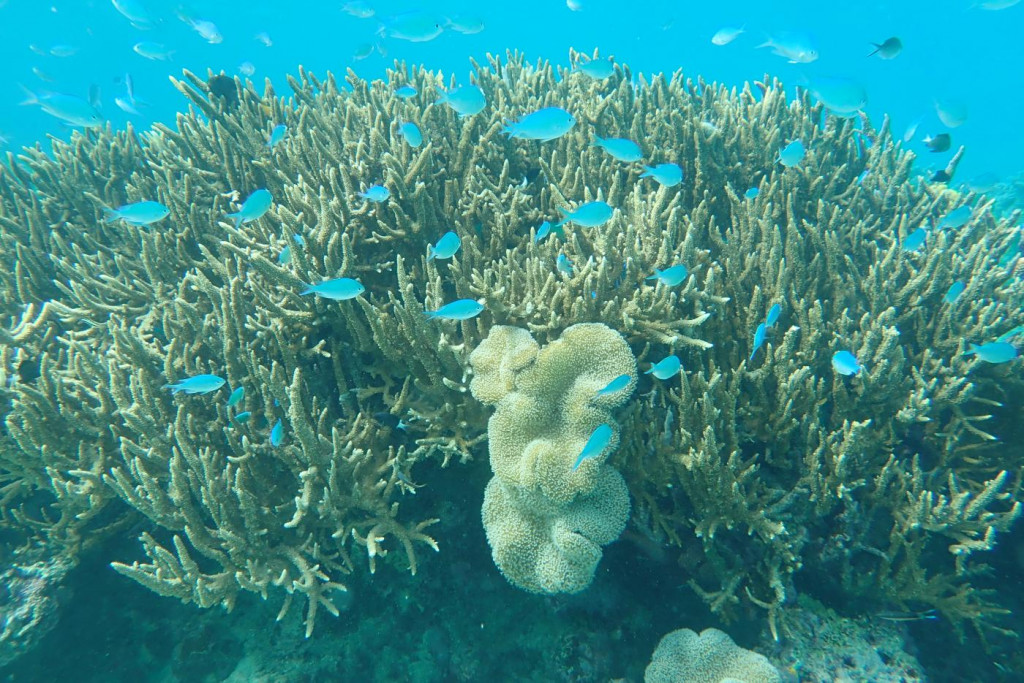
Why a permanent Tabu?
Research shows that only complete, permanent closures are successful. They provide the time species need to grow, breed and in some cases, recover to benefit the region. This can take many years for some species. The benefits of an area closed for several years can be eroded after only one day of being re-opened to fishing. Effective tabu areas need permanent closure to protect big fish that are much more reproductive than small fish (super breeders) and guarantee overflow around the protected zone.
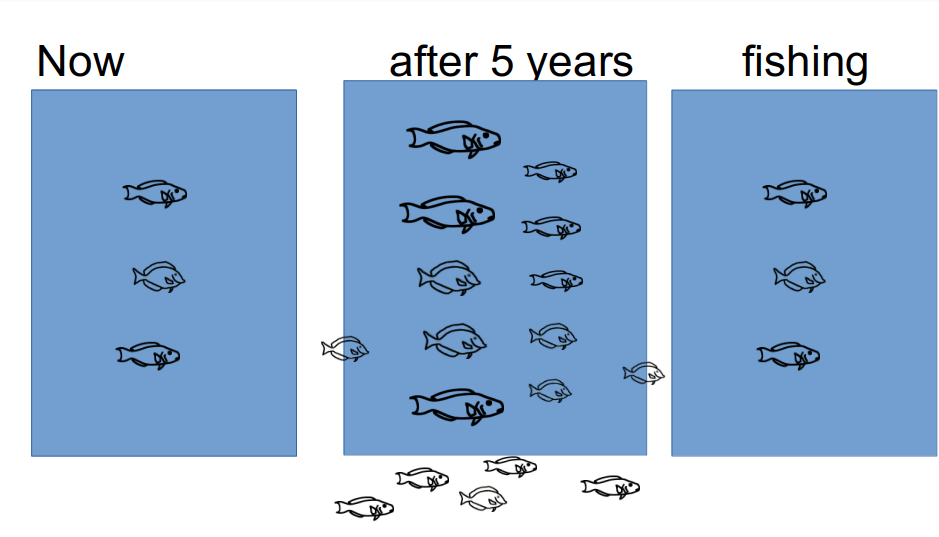
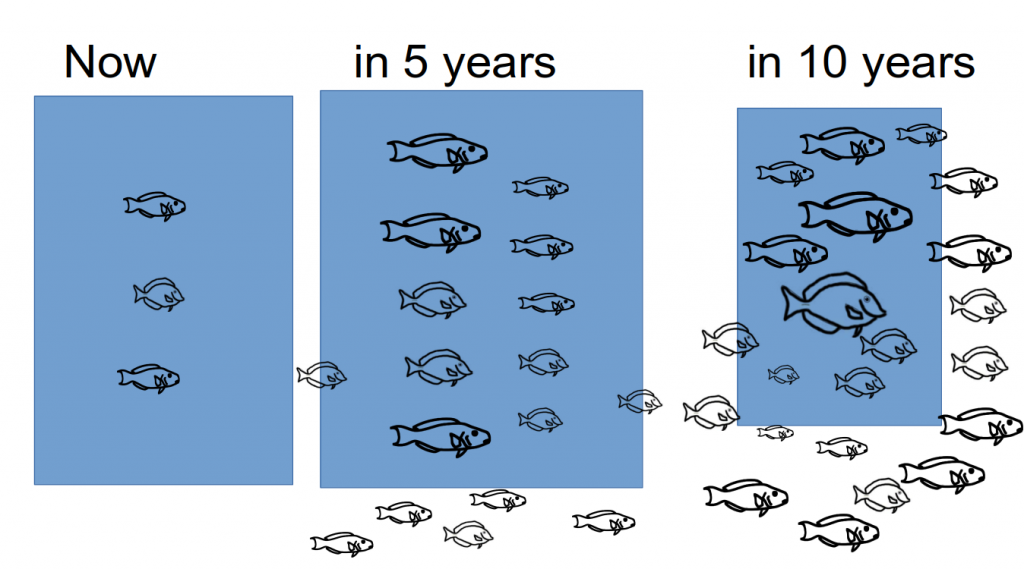
The Tabu zone must be big enough
The size of tabu areas is also critical to their success. Tabu areas on fringing reefs should protect from the shore across the reef flat and out past the reef crest to ensure all species in the area are offered protection. The size of the tabu area will depend on the life cycle and natural range of movement of the protected fish species. If the tabu is not big enough to cover all endangered species it makes sense to protect these species even outside the tabu! For example no shark fishing all around the island, no grouper fishing during the spawning season, etc.
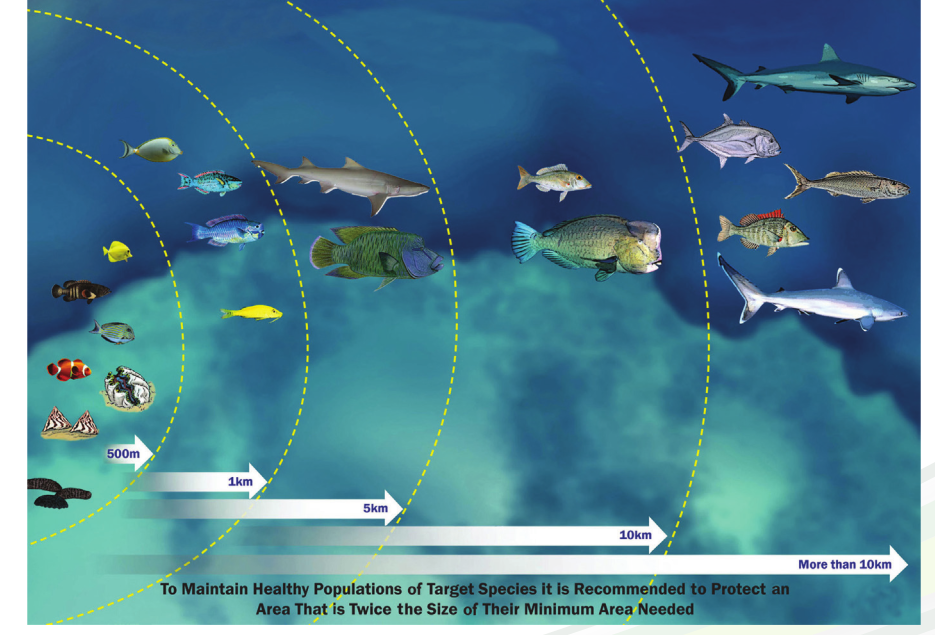
Tabu area location
Coral reefs, seagrass and mangroves provide critical habitat for many marine animals, for spawning (e.g. reef fish), feeding (e.g. turtles) and as nursery areas (e.g. for reef fish and sharks). Tabu areas should include habitats that support different life cycle stages. For example many fish babies need the protection of mangrove forests to grow up, later they spend their adult lives on coral reefs.
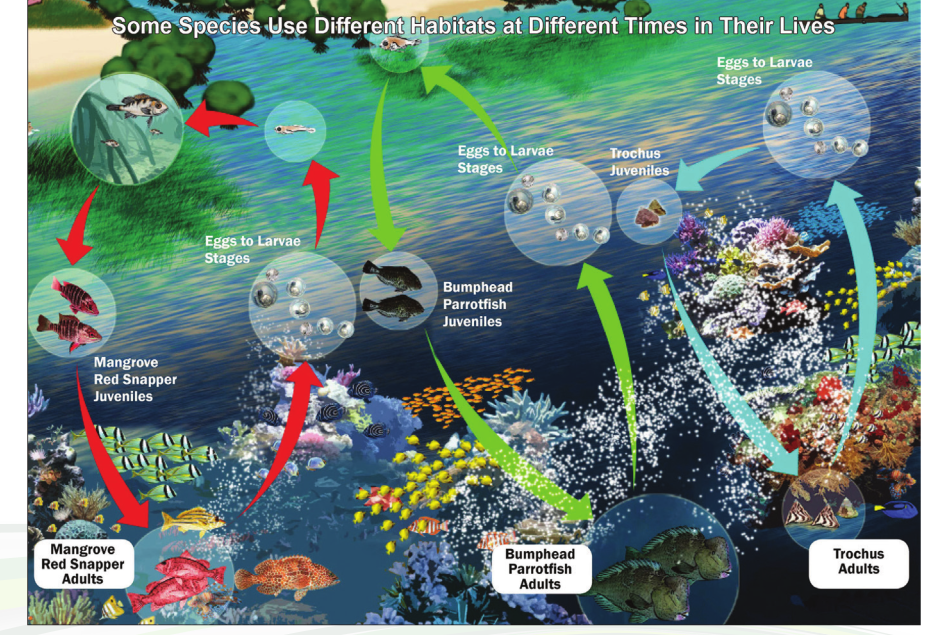
So why are coral reefs so important?
They protect the shoreline from storms and surge water. Barrier reefs reduce waves, buffer the shores and prevent erosion.
They form a protected habitat for a huge variety of fish.
Most corals and sponges as well as clams are filter feeders, so they contribute to enhanced quality and clarity of our near shore waters.
Communities can achieve a sustainable income from eco-tourism and dive tourism if they have a healthy reef with many attractions (big fish, turtles, sharks)
But all around the world reefs are damaged and dying because of
• Global warming
• Pollution
• Overfishing
NO REEF NO FISH!
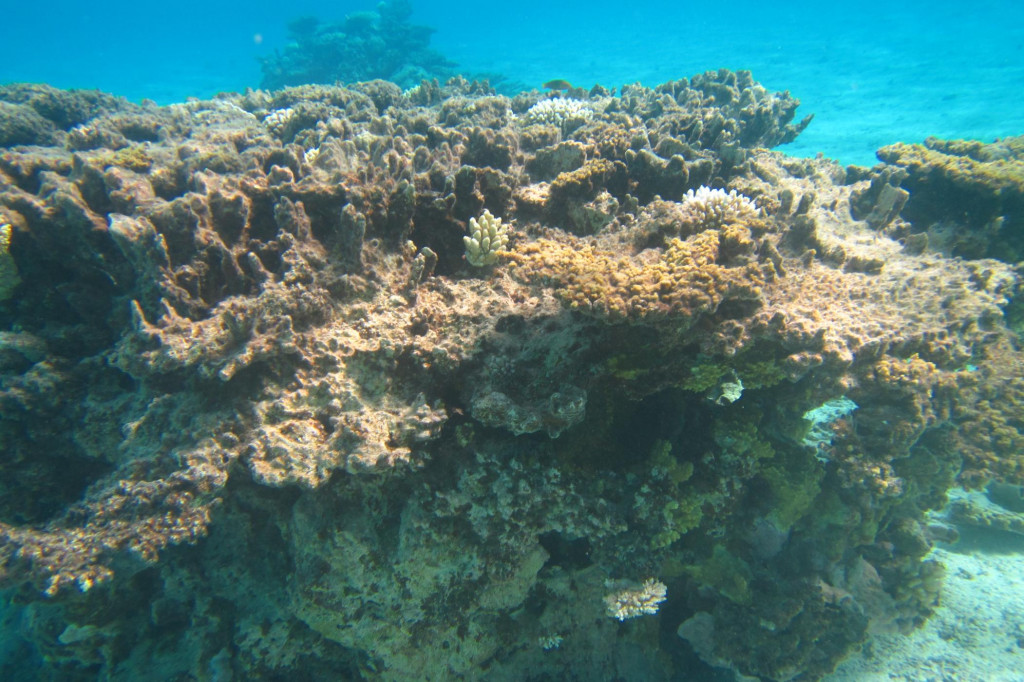
Reefs need a balanced eco-system
Coral reefs support an incredible diversity of fish. Everything from lobsters and octopus to sea turtles and dolphins depend on the reef for food, habitat and protection. Each animal plays an important role in the reef ecosystem, by filtering water, consuming prolific algae or keeping a particular species under control. These balanced relationships keep the marine ecosystems diverse and abundant with life.
Sharks eat sick fish and prevent the spreading of diseases.
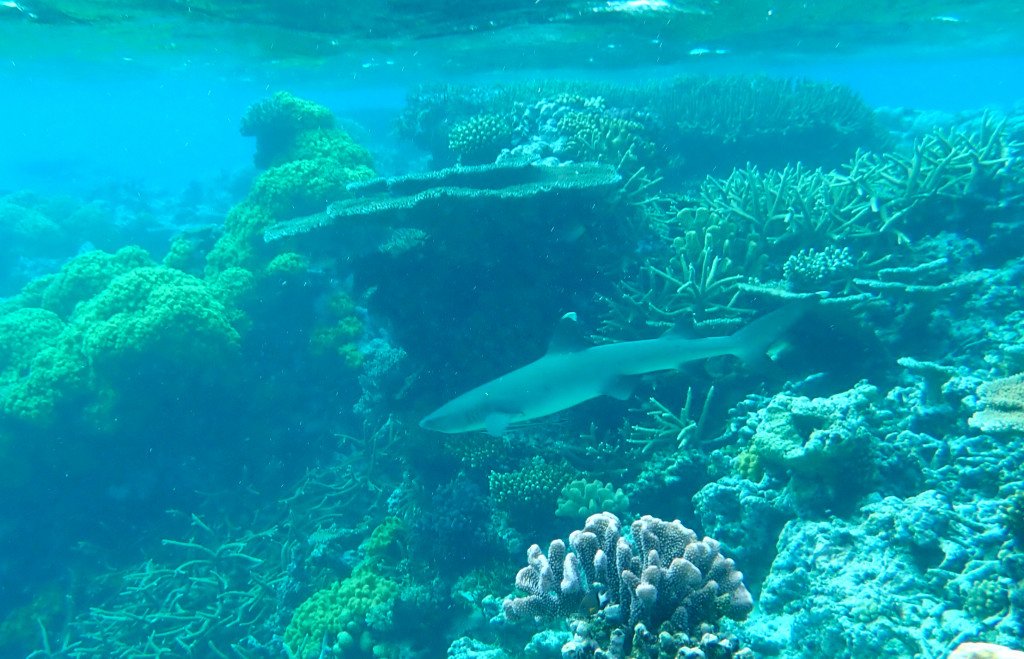
Turtles eat dangerous jelly fish and keep seaweed under control.
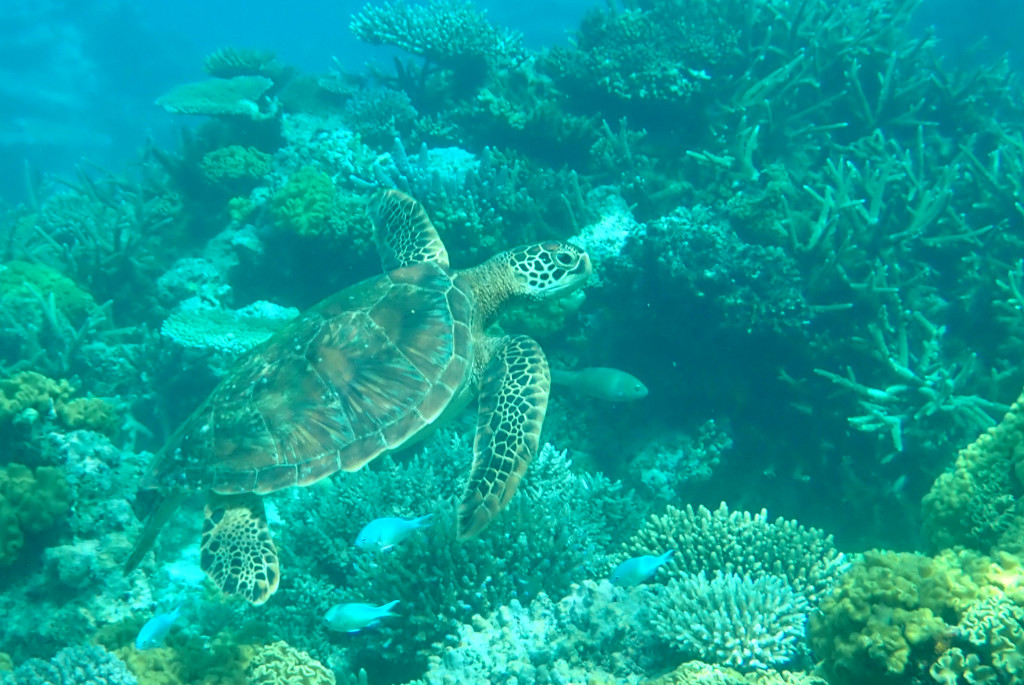
Parrot fish and other herbivore fish are the cleaners of the reef: They eat seaweed and algae, keep the rocks clean, so that coral can grow back.
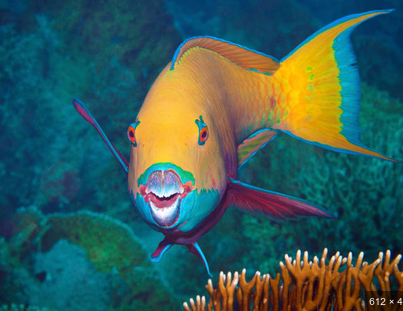
If there is overfishing, there are not enough fish to clean the coral, so damaged coral cannot recover…
A reef can only recover from damage if it contains a balanced eco-system and if there are enough fish to clean it!
NO FISH, NO REEF!
2023
02
Jul
The Matuku Marine Reserve and how it came into being
Matuku was the first island in the Lau group we visited with our Pitufa in July 2022. The little island doesn’t see many yachts as it lies off the beaten track and we were amazed by the hospitality the villagers showed us and the wonderful underwater landscapes that we found just off our anchorage.
During our second visit in Matuku we started raising awareness for sustainability among the villagers, starting with the kids (drawing colourful parrot fishies and talking about their role in the eco-system) and finally doing presentations for the chiefs and headmen about the problem of overfishing. We found that the fishermen were already concerned about dropping numbers of fish and eager to hear solutions for sustainable fishing. We explained our experiences among Pacific Islands and suggested installing no-fishing areas.
Returning to Matuku in February, we were happy to hear that some villages were planning to implement no-fishing-zones, but then we had a horrible boat accident while scouting out a possible location for a tabu on the Southern side of the island, that left me with serious injuries and ended fatal for Maikeli Tamani, the headman of Makadru village…
A week after the accident we managed to sail back to Suva and only after having x-rays and a CT scan done, did we finally realise how serious my injuries were. 5 broken ribs, a pneumothorax and a partially torn triceps tendon…
Spending my days on the sofa in Pitufa’s salon without being able to move around, I started contemplating how we could turn the accident into something positive. My idea of buying medical equipment for the hospital in Matuku failed due to bureaucratic hurdles, but we wanted at least to help the villagers implementing their marine protection area.
We tried to raise local interest in Matuku and the planned Tabu by giving an interview to the Fiji Sun newspaper
We kept in touch with “our island” and are now happy to announce that the final decision to install 3 big, permanent no-fishing-zones! has been made!
The villages of Matuku will need some financial help installing and patrolling their Marine Reserve.
2023
02
Jul
Donations for the Marine Reserve in Matuku
Tony Philp of Vuda Marina and Coprashed Marina has gracefully offered to provide ground tackle and buoys to mark the borders of the Marine Reserve, thanks Tony!
We still would need some funding to support the efforts of the islanders to protect their reef. They will need to patrol the area (especially at night) to make sure no outsiders ruin their Tabu with illegal spearfishing, so we would like to donate fuel for that. It would also be good to print posters and brochures to inform the villagers, schoolkids as well as visitors about sustainable fishing in general, the permanent ban on fishing in the area and the reasons for it. Last but not least a Tabu committee will have to monitor the success of the project, count fish populations and publish the effects and advantages of the protection zone, so the villagers will keep backing it!
It may sound presumptuous to ask for money for our little project here in times of war and crises, but maybe you’d still like to help us out. You can either do this on the spot by anchoring your yacht in Matuku to enjoy the wonderful snorkeling on the pristine reef and put your donation straight into the “Marine reserve boxes” that will be with the headmen of the neighbouring villages Yaroi and Lomati. Or you could press the “donate button” below this entry and do a paypal transfer. We’ll publish all sums and the names of donors as comments here on the blog (unless you mention in the paypal transfer that you’d rather stay anonymous) ![]()
2023
26
Jun
Pics of our road trip around Viti Levu
The coastal road around Fiji’s main island is about 500 km long and features lots of pot holes and construction areas (to fight the “pot holing” as the signs say) and goes by villages that look like colourful little boxes along the road, endless sugar cane fields, barren hills and meditating, regurgitating cows.
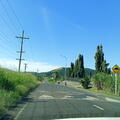
Road trip to Suva
We rented a car and drove all around Viti Levu, the big main island of Fiji. We stayed at the Suva-i-Colo Eco Lodge https://www.rainforestecolodge.com.fj/, did some hiking and met friends from the Lau Islands, who were also visiting the capital.
(33 photos)
2023
25
Jun
Marine reserve in Matuku (Fiji)!
The islanders of Matuku have decided to protect 3 areas–the biggest of them is 4.5 km2(!) and includes mangroves, sandy shelves and a lively, beautiful reef just off the main pass! No spear-fishing or net-fishing will be allowed in this Tabu (traditional ban) and it’s planned to be permanent, so all species of reef fish will find a refuge to grow, multiply and guarantee sustainable fishing for the villagers in the surrounding areas.
We have seen so many reefs here in Fiji that have been fished empty, either by locals trying to make a short-term profit with exporting fish, or even by visiting fishermen (many of those who have emptied their own reefs now raid remoter islands…), but some islands in the Lau group still feature pristine reefs, where overfishing only recently has started (mostly with the arrival of electricity, thus freezers and a way to export). When we first visited Matuku last year in July, we were impressed by the healthy reefs there, but talking to fishermen we found that they had already noticed a decline in fish. We started sharing info, explained the good and bad examples we had seen on other islands (e.g. empty, dead reefs in Tahiti, thriving fish and coral on the permanently protected side of Rapa Iti) and tried to raise awareness for the problems they would face if they kept overharvesting. We sailed to Matuku again last October and yet again in February this year and each time the plans to install Tabu areas became more concrete–visiting the planned protection area on the S side of the island we then had our terrible boat accident that cost Maikeli Tamani (the headman of one of the villages) his life and left me with injuries that are still healing.
Until recently Matuku had no internet and we only kept in touch with occasional phone calls on a landline with a very bad connection. When we heard that all the headmen and chiefs would travel to Suva for a conference that would lay down fishing rights (among lots of other things) we decided to head to Suva as well–to find out details and to maybe help with finalising issues. Meeting the headmen of Lomati (the village next to the pass) and Yaroi (the main village) we were hoping that they had agree on a little Tabu and were prepared to bring some more arguments for a permanent fishing ban, instead of a (more common) limited protection. Imagine our surprise when Tuni (the young, ambitious headman of Yaroi) outlined a huge area on the satellite pics we had prepared on our laptop. He almost seemed offended that we had doubted them. “You showed us the facts, so we did what’s necessary”–if only the world leaders had that much common sense, then global problems like climate change and pollution could be tackled and solved efficiently (instead of promising measures until 2030 or 2040…)
So this is a big success for the people of Matuku who will have sustainable fishing on a long-term basis (if climate change and pollution won’t wipe out all reefs) and hopefully more islands of Fiji will follow their example. It’s easy to lose all hope for the environment when you read the daily news about yet another catastrophe and yet another regress in legislations concerning protection as the people are still striving for short-term profit instead of thinking of the future and realising that we’re all doomed if we keep mistreating our planet like we’ve been doing for too long. “A further rise of soil sealing in Austria”, “Norway allowing deep sea mining”, one deliberately done catastrophe in Ukraine after the other–and that’s just an abstract of what we read on the news while having coffee this morning. I hope that the good news from our little corner of the world will make your day!
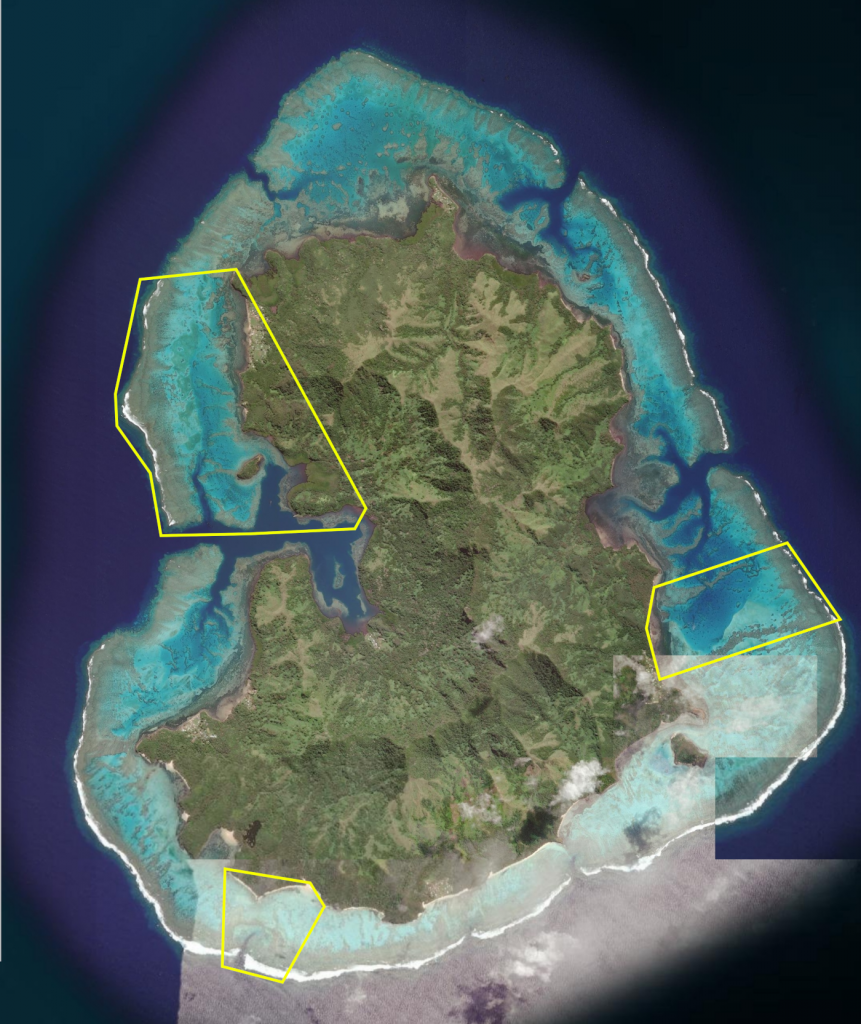
2023
13
Jun
2023
02
Jun
Cover girl again!
Last month our Pitufa was AllAtSea’s cover girl, this month it is Birgit’s turn!
Download the magazin for free at allatsea.net.
2023
02
Jun
Boatyard pics!
In May we spent one and a half weeks on the hard in Vuda Marina, here are some impressions!
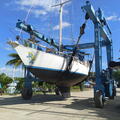
On the hard in Vuda
After 3 years in the water it was time to haul out again, even though our antifouling was still in surprisingly good shape! We stayed out for 10 days, changed the cutlass bearing, did 2 layers of antifouling (Carboline Alloy 100, great stuff for aluminium boats), some cosmetic paint jobs on the bow, renewed a thru-hull and did some interiour plumbing. Vuda is a nice yard with friendly staff, a restaurant with lunch specials and a bar as a meeting point, but even though we were lucky with the weather and only had occasional showers, the area around Pitufa was a swamp and the lack of chandleries made it necessary to run endless errands to hardware stores in town and the chandleries down in Denarau.
(16 photos)
2023
18
May
Marina life in Vuda
We have successfully avoided marinas over the past 10 years–the last time we had to go in was in the Cape Verde Islands to have a shroud replaced. It’s not just a matter of saving money, we just don’t enjoy being in a berth: creaking lines, noisy neighbours with clanging and banging halyards, it’s hot, you can’t go swimming, the wind’s never from the bow and mosquitos invade the boat… We always find it astounding how many people spend lots of time (and money) in marinas and actively seem to enjoy it, even call it a “treat”.
Vuda marina is far away from the next town, there’s only one (badly stocked) chandlery and no supermarket, so going shopping means taking the bus (inconvenient with bags), or an overpriced taxi, but we got lucky and found a private taxi and did our shopping tours with Wise (nice and reliable guy, whatsapp +679 988 2254).
After we splashed we still had to wait for our watermaker that was being serviced, so we anchored outside Vuda point, but it’s an open anchorage and usually bouncy in some swell or wind-eddy over the mainland. We tried anchoring further inside the bay behind the pipelines and coming and goings of tanker ships (also noisy) and also spent a few days just north of the marina in Saweni bay, which is nicely protected in anything from E, S to W, but open to the north, so we had to flee a few times. In between we went back into the marina to go alongside and have our watermaker delivered as repaired–only to send it back with new/old/more problems. Yesterday we sailed over to Musket Cove, even though the watermaker issue is still not quite resolved, but we simply wanted to get away for a while.
